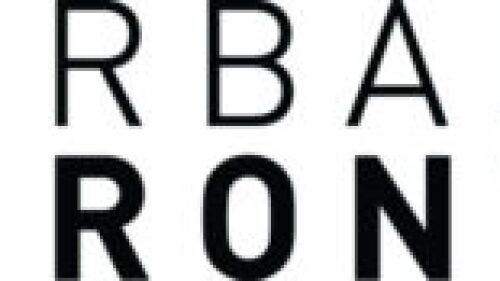The second half of 2020 through to the following year was probably the busiest investment period in the two decades at Brookfield in the Asia Pacific region, according to the investment management firm managing partner and chief investment officer Lowell Baron.
“When capital is plentiful and people are chasing deals, that’s when prices get high,” said Baron at a fireside chat session at the 2023 ULI Asia Pacific Summit opposite moderator Radha Dhir, JLL’s CEO and country head for India. “It’s usually not a good time to invest [when] you know that competition is pushing values high, to the point where it may not make so much economic sense.”
One of the largest transactions in India during that uncertain period, which saw volatile markets amid what Baron likened to three short market cycles in three years, was Brookfield’s eye-catching $2 billion acquisition of an office portfolio across Bangalore and Chennai.
Baron called it a “portfolio of the highest quality that we never could have bought [otherwise], except for at that moment in time.” It was a move consistent with Brookfield’s bullish outlook for real estate in the Asia-Pacific region, which is primed to grow significantly post-pandemic.
Dhir noted that this acquisition occurred despite the prevailing sentiment in the past three years of COVID-19 restricting opportunities and hence keeping transaction volumes low.
As this reinforced Brookfield’s reputation for being a contrarian and value investor and owner-operator—in real estate types such as office, retail, industrial, multifamily, hospitality, self-storage, and student housing, Dhir asked how the firm would live up to this reputation in the Asia-Pacific region. “I think it’s always a bit of a misnomer, when it comes to ‘contrarian investing,’” Baron said. “People think it just means that when everyone else thinks something is wrong, [we] must therefore think it’s good.”
For Brookfield, the approach boils down to following the data that it derives from all of its assets around the world, watching real-time trends and seeing what’s really happening, and then doing something “a little bit different” from what others think is right. “You’re following the facts you see on the ground, which don’t always tie in with whatever investor sentiment might be, or with general consensus views of the market,” Baron said. “[These could be something that] people aren’t yet seeing or aware of, so often it is going against the headlines, when the headlines are just wrong.”
Two recent narratives that Baron disagrees with are that the real estate sector is an asset class in serious risk, a sector where the fundamentals are not good, and that offices are not attractive propositions for investors to allocate capital towards.
“This couldn’t be further from the truth. It’s really a myth that real estate is in a precarious position,” he said. “In fact, the vast majority of real estate is in a place where the fundamentals are great, occupancies are high, pricing power is very strong, demand is there, and rent growth is happening.”
Opportunity in Office
As for the office segment, Baron noted that there are bifurcations both in region and in quality. In the United States, there has been a slower return by workers to the office, yet in Asia Pacific, the segment feels “incredibly vibrant,” he said.
With the commodity office in the U.S. currently in a period of oversupply, Baron predicts that it will take “quite a bit of time” and entail more “pain” in the segment as it negotiates demand and supply shifts towards a new equilibrium.
“We really do believe that people will come back to the office to a greater degree over time,” he said. “Does [remote working] actually work for companies that want to be strategic and proactive, that want to build a culture, that want to hire the right people, and create their next group of leaders?
“I think the answer to that is, it does not,” said Baron, who added that high-quality office spaces, modern offices with access to amenities, retail, and food and beverage options, are still in great demand.
At Brookfield’s Manhattan West development in New York City, for instance, office spaces that are being leased now are going for rents as much as 40 percent more than those leased before the pandemic. “How could this be if no one wants to work in offices [anymore]? The reality is, for great office space, there’s not enough of it, and there are enough tenants who really want their people back in that space, so the rents are going up quite a bit and it’s very healthy.”
In the Asia Pacific region, Brookfield has close to $114 billion of assets under management, of which $30 billion is in real estate. Asked about Brookfield’s real-estate strategy for the region, Baron said that its strategy there is not much different from its strategy for the rest of the world. “It is to focus on buying the highest quality assets and applying our operating expertise to create growth and value in those assets, but the attraction obviously is the attraction of the growth of the region,” he said. “Half of [global] GDP growth in the next few years is coming from this region, this is the driver of growth of the world, and so it’s really important for us to be present here.”
Ready to Scale
Brookfield now employs 4,500 people across local teams in cities such as Shanghai, Beijing, Mumbai, Delhi, Sydney, Melbourne, Seoul, Singapore, and Tokyo, and Baron said it is now well-positioned to deploy capital and scale up its growth in the region.
“We’re now set up for a place where it’s great that we have $30 billion of [real-estate] assets under management here, but we’re really about to scale that.”
When it comes to generating returns and optimizing yield, Baron highlights Brookfield’s focus on developing operating expertise, and its ability to transplant this expertise into new markets, alongside the local knowledge of its teams on the ground. “It really comes down to operating platforms and the expertise that we have,” he said. “One of the things I really like about that, which is really unique and special to us, is that when we create real operating expertise in certain markets and property types, the most exciting thing we can then do is figure out where else in the world that property type should exist.”
Looking ahead, Baron said that Brookfield will continue to monitor key themes in its real-estate investment outlook. “There are certain themes that we think have really strong tailwinds for the next decade-plus,” he said. “It’s things like demographics and affordability, which really relates to housing.”Other themes relate to trends changed or accelerated by the Covid-19 pandemic, including the rapid demand for goods via e-commerce, and people’s desire for flexibility in their lives and for experiences, which relates to hospitality.
“And then, of course, all the supply chain issues that people realized and then saw the need to diversify supply chains and manufacturing bases, which leads to opportunities in manufacturing, logistics, and life sciences,” Baron added. “There are certain trends like those that we think have very long tailwinds ahead of them, which will make certain sectors very favorable for a period of time.”
YONG SHU-CHIANG is an editor, a writer, and a consultant based in Singapore. He is an alumnus of the University of Texas at Austin and has written for the Austin Business Journal, The Straits Times, The Business Times, The Peak, Today, and CNET Asia.


